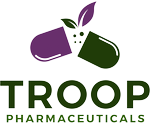Cholesterol travels through the blood on proteins called “lipoproteins.” Two types of lipoproteins carry cholesterol throughout the body:
LDL (low-density lipoprotein), sometimes called “bad” cholesterol, makes up most of your body’s cholesterol. High levels of LDL cholesterol raise your risk for heart disease and stroke.
HDL (high-density lipoprotein), or “good” cholesterol, absorbs cholesterol and carries it back to the liver. The liver then flushes it from the body. High levels of HDL cholesterol can lower your risk for heart disease and stroke.
When your body has too much LDL cholesterol, the LDL cholesterol can build up on the walls of your blood vessels. This buildup is called “plaque.” As your blood vessels build up plaque over time, the insides of the vessels narrow. This narrowing blocks blood flow to and from your heart and other organs. When blood flow to the heart is blocked, it can cause angina (chest pain) or a heart attack
Eating too much saturated fat in your diet can raise BAD CHOLESTEROL, LDL (LOW-DENSITY LIPOPROTEIN) in your blood, which in turn increases the risk of heart disease and stroke.
It is often called the “BAD” cholesterol because it collects in the walls of your blood vessels.
Things that can affect LDL level includes:
– Diet: Consumption of Saturated Fat
– Weight :Being overweight tends to raise your LDL level.
– Physical Inactivity: A lack of physical activity can lead to weight gain which can affect the level of LDL.
– Smoking: Cigarette smoking can contribute to increase in LDL level.
– Genetics :Your genes partly determine how much cholesterol your body makes. High cholesterol can run in your family.
– Medicines: Certain medicines, including steroids, some blood pressure medications and anti-retroviral medications can raise your LDL level too.
NATURAL WAYS TO LOWER LDL CHOLESTEROL LEVEL
– FOCUS ON MONOUNSATURATED FATS : such as olives and Olive oil, canola oil, tree nuts such as almonds, cashews etc, avocados.
– USE POLYUNSATURATED FATS, ESPECIALLY OMEGA-3s :Polyunsaturated fats have multiple double bonds that makes them behave differently in the body than saturated fats.
– TRY SUPPLEMENTS : fish oil, psyllium, coenzyme Q10 etc.
– EXERCISE : It is a win-win for heart health. Not only does it improve physical fitness and help combat obesity, but it also reduces harmful LDL.
– Also try eating more of fruits, vegetables and chicken ( than red meats such as beef). Remember to skin the chicken before cooking.




